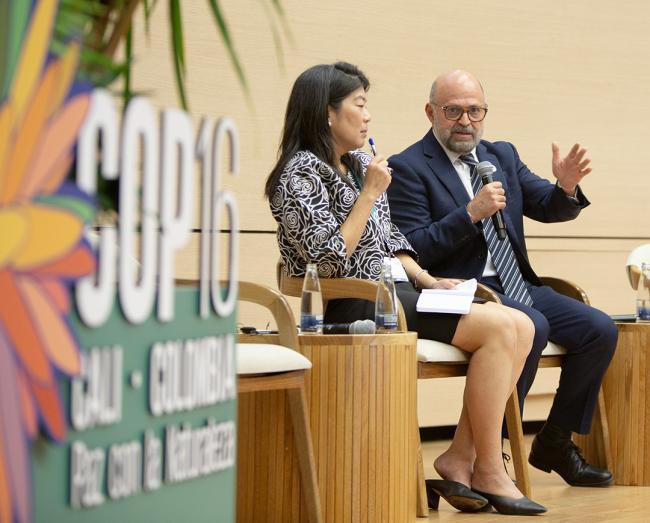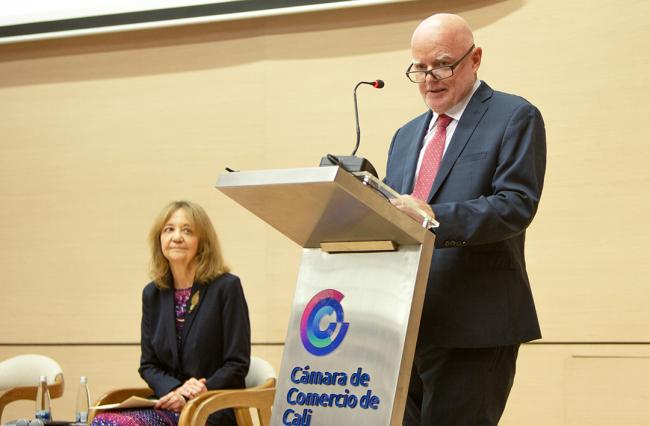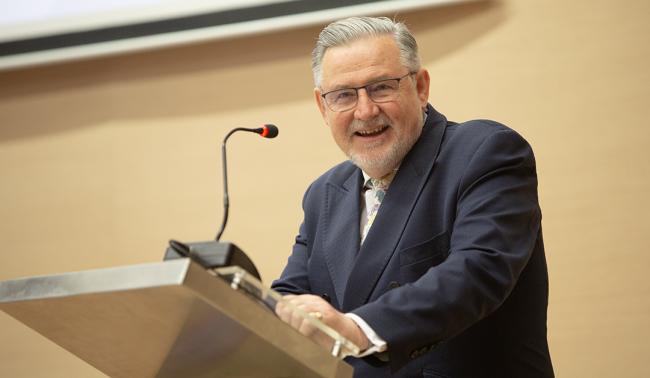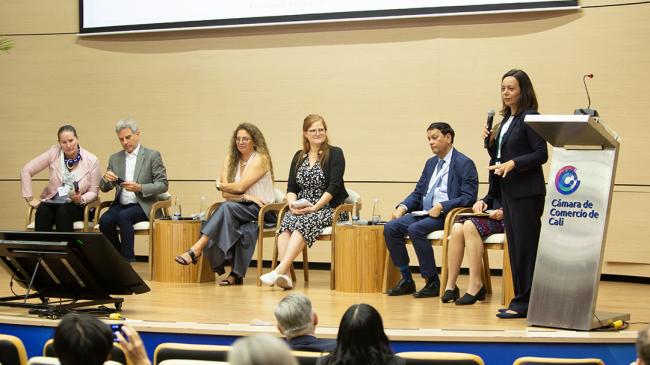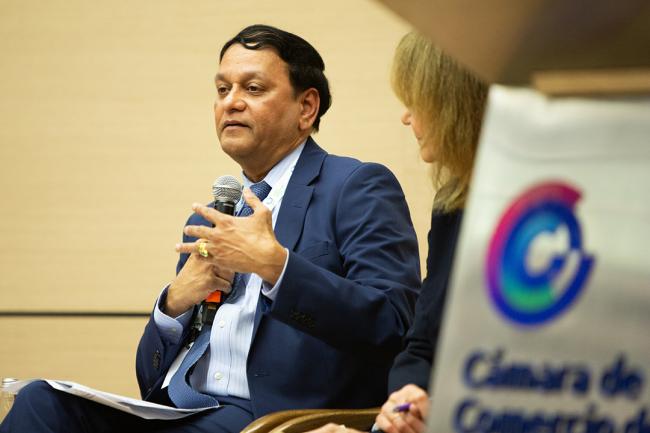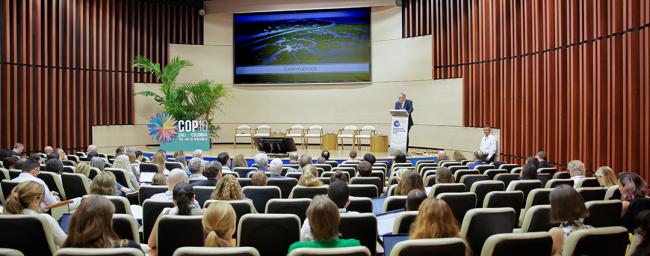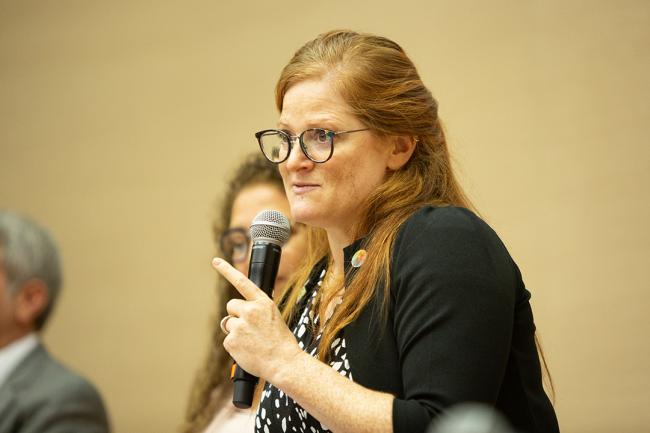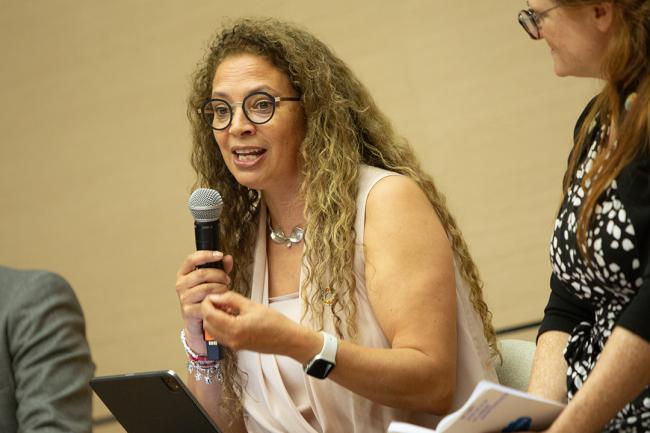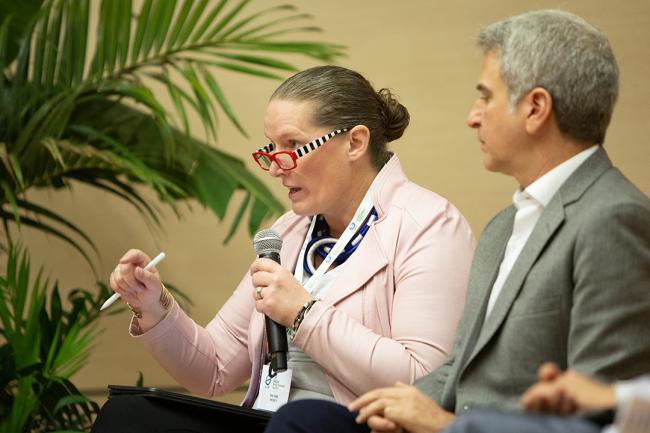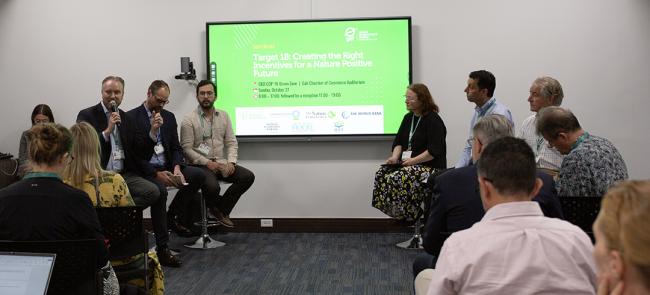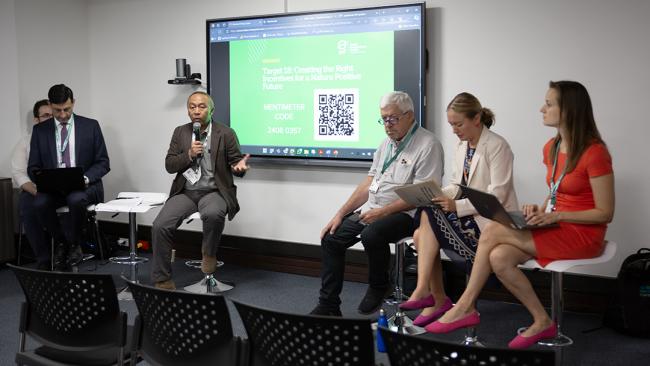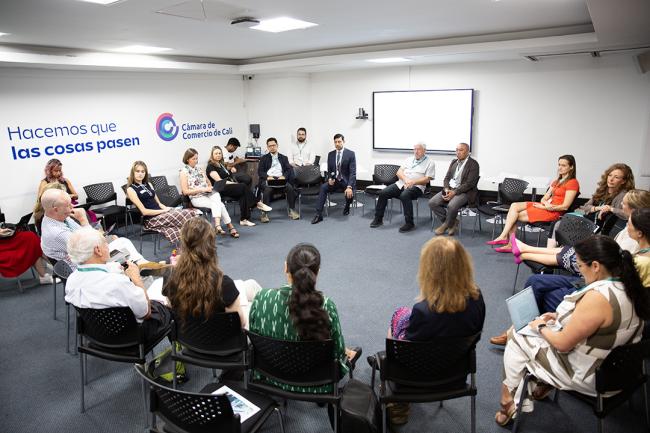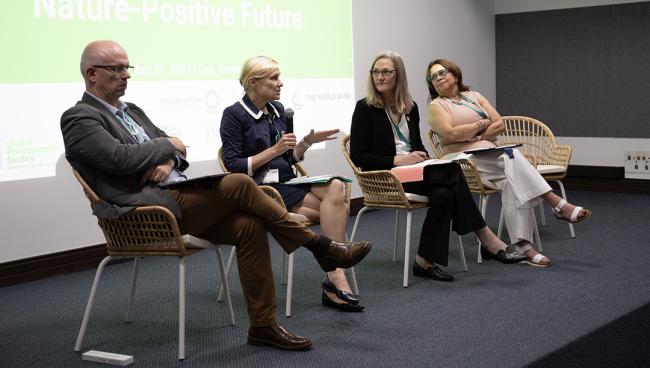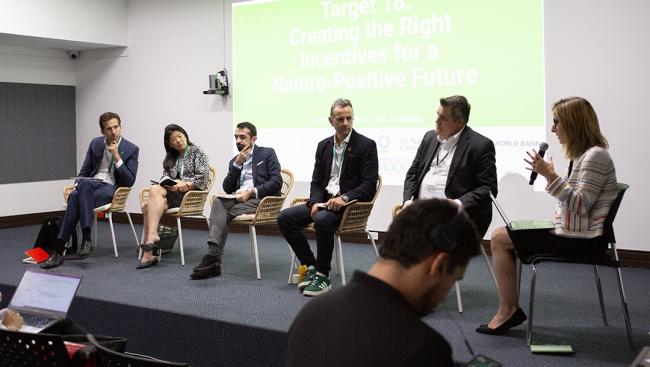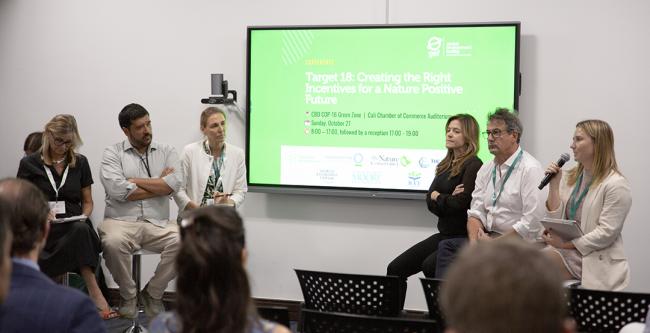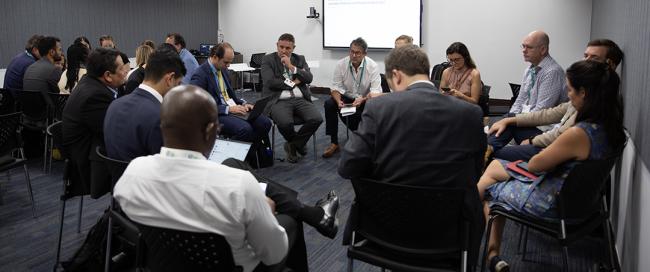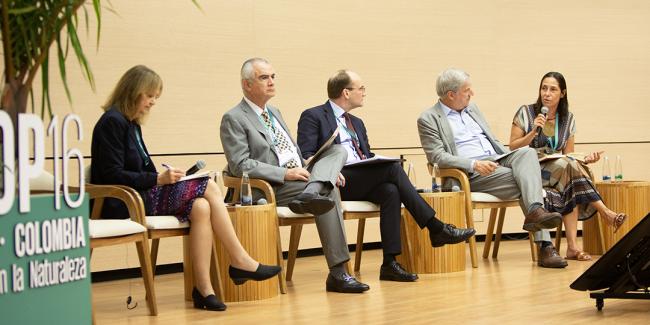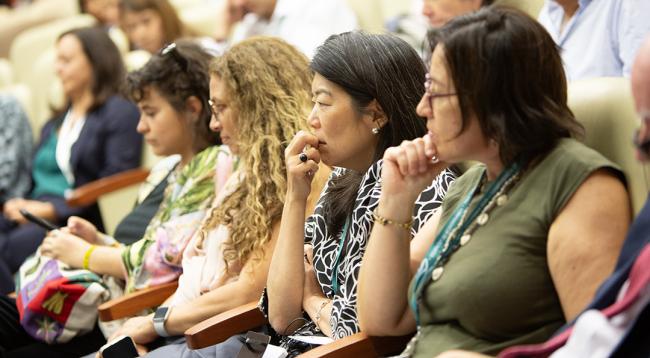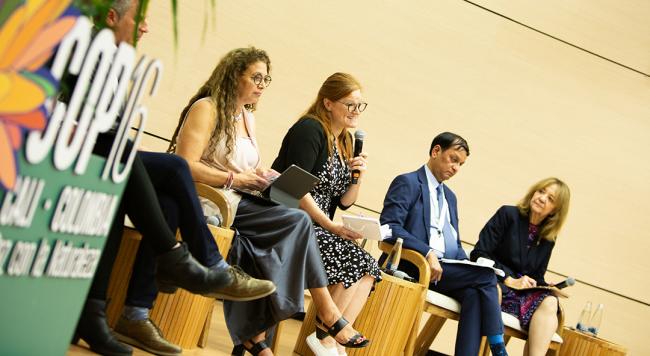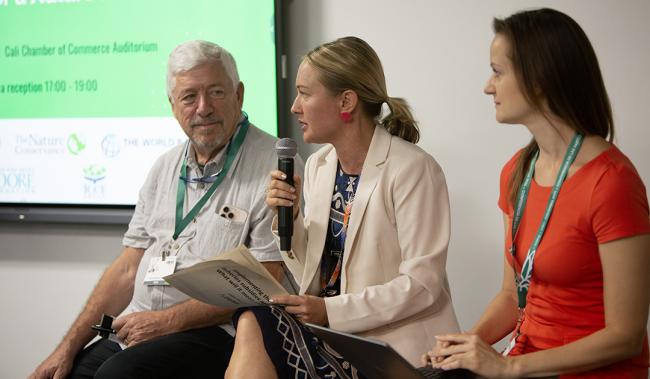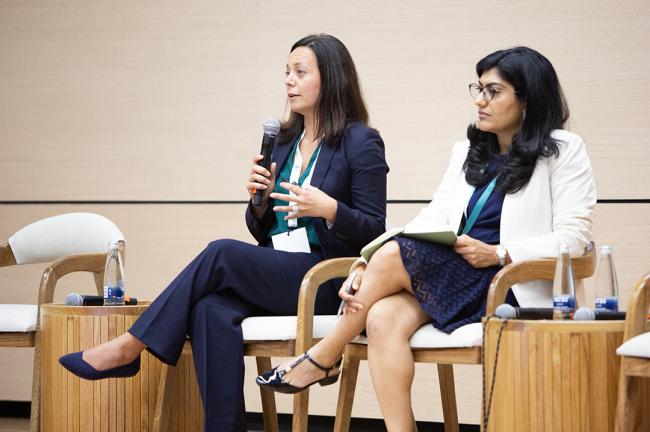About
Eliminating, phasing out, or reforming harmful incentives is key to the conservation and sustainable use of biodiversity.
In order to meet Target 18 of the Kunming-Montreal Global Biodiversity Framework (GBF), countries must: identify these harmful incentives by 2025; substantially and progressively reduce them by at least USD 500 billion per year by 2030; and scale up positive incentives. This event brought together policymakers, stakeholders, and experts, to exchange information and provide recommendations on how parties can align policies towards achieving Target 18.
Rosina Bierbaum, Chair, Scientific and Advisory Panel of the Global Environment Facility (GEF), opened the event, reiterating that Target 18 of the GBF aims to eliminate or reform harmful subsidies by at least USD 500 billion annually and scale up positive incentives for biodiversity. Bierbaum encouraged participants to leverage their collective insights to: recognize the importance of incentives for biodiversity and policy alignment; identify enabling conditions, sources of transition finance, and challenges; and recommend ways to scale up efforts to meet Target 18.
Claude Gascon, Director, Strategy and Operations, GEF, set the stage for the day’s work, citing the advancements but insufficient results with respect to Aichi Target 3 (harmful subsidies). He emphasized the critical role of positive incentives for the sustainable use of biodiversity and the importance of aligning policies and finance flows to combat biodiversity loss and promote sustainable development. Gascon outlined the event’s ambitious tasks, including to: provide guidance for future funding and programming; foster collaboration among institutions; and shape the work of all stakeholders. He highlighted that success requires not only high-level political will, but commitment from all levels of society.
In his keynote speech, Barry Gardiner, Member of Parliament, UK, addressed the role of policy incoherence in perpetuating harmful subsidies, saying “we use nature because it is valuable,” and “we abuse nature because it is free.” He noted that classical economics fails to account for the value of public goods like pollination. He stressed that policy misalignment leads to harmful incentives, describing GDP as a measure of economic activity rather than human and economic well-being. He noted that governments spend more on harming nature than protecting it and advocated for investment in inclusive wealth, such as infrastructure, human and natural capital, education, and judicial systems. Citing COP 16’s theme, “Peace with Nature,” he concluded, “If you want peace, create justice. If you want justice, live sustainably.”
High-Level Panel
Noting that “we cannot continue taking everything, everywhere, all at once, on the land and the sea,” Bierbaum invited panelists to consider the role of public financing and policy reforms in transforming the incentive landscape of national and international financing.
Prasad Ananthakrishnan, Monetary and Capital Markets Department, International Monetary Fund (IMF), outlined the IMF’s work to support countries’ work to manage the transition risks associated with reductions of harmful subsidies. Underscoring the need for innovative solutions and risk sharing, he said the IMF is using its convening strength to bring all partners to the table, encourage interministerial coordination, and mobilize additional financing from domestic and external sources.
Carlos Correa, former Minister of Finance, Colombia, highlighted his work to achieve “30 before 30” biodiversity goal in Colombia, explaining his government achieved this goal by working collectively across ministries and with the private sector and civil society and making hard decisions. He underscored the importance of political will and money, and lauded the creation of a climate action cabinet made up of all ministers.
Underscoring that 100% of the economy is dependent on nature, Eva Zabey, CEO, Business for Nature, said companies are recognizing their impacts and dependencies on nature, but the economic system rewards short-term profit over long-term value creation. She underscored that businesses are often dependent on environmentally harmful subsidies but do not know where or how they benefit from them. Sh said reforming these subsidies could create new investment opportunities and jobs, as well as strengthen the resilience of business models. She called on businesses to map their dependences on these subsidies and be part of the transformation.
Patricia Zurita, Chief Strategy Officer and Executive Vice President of Global Programs, Conservation International, said at least USD 500 billion in subsidies each year are destroying nature, but reform is hard because people are benefiting. She emphasized that civil society can bring visibility to the issues, share data, and broker conversations to create incentives that protect nature. She said the biggest challenge to achieving Target 18 is that it is perceived to be incredibly difficult, so “no one wants to touch it.”
Valerie Hickey, World Bank, underscored the need to get the data right on trade-offs, called for moving away from discussing “big political numbers” and instead focusing on numbers on the ground, and making sure the right people – including Indigenous Peoples who are stewards of the land – are at the decision-making table and have the capacity to make their voices and interests heard. Noting that the World Bank has jumped from putting the economy first to putting the environment first, and “neither has worked particularly well yet,” she underscored the need to change economic models and achieve more balance.
Bierbaum asked panelists to share what they needed to achieve transformational change.
Ananthakrishnan underscored the need for public-private partnerships, risk sharing, and getting “all hands on deck.” Zabey highlighted the need for a coordinated plan, courage, and confidence to ensure that today’s self-inflicted pain is tomorrow’s long-term gain.
Zurita highlighted the importance of involving farmers, fishers, youth, academia, and others who want to think creatively about how to change harmful subsidies into incentives. Correa underscored the importance of communities and sub-national governments and emphasized the need for data and technology.
Citing mistakes in the climate movement, Hickey called for celebrating successes and presenting a positive vision of the future. She underscored the need to move away from “announceables,” which she said drive “big conservation” to reinvent the wheel and come up with new ways to count environmental data.
In concluding remarks, Bierbaum cited the need for leadership, partnership, and innovation in order to take the data we have and use it in ways that can be more transformative. She further noted the importance of pulling people together in ways that do not exhaust civil society.
From Theory to Action: Incentive Reform Around the World
Following the High-Level Panel, participants joined three parallel breakout sessions – two on agriculture and one on fisheries – to consider what is needed to reform environmentally harmful subsidies in various countries and contexts.
In the afternoon, Lina Barrera, Global Policy and Government Affairs, Conservation International, summarized the outcomes of the discussions. She cited trade-offs as the biggest challenge identified by the groups, and said it is essential to understand the social benefits of a given subsidy and how that can be maintained while adjusting for environmental outcomes. She highlighted the need to take a whole-of-society approach through building trust-based coalitions with communication platforms and technical partners. She also noted the importance of a landscape approach, through which stakeholders consider the desired vision for the whole space and how to align policy incentives to achieve that vision.
Participants highlighted the need for good data, including on economic impacts and benefits, and cited the importance of communicating it well. Participants also underscored the need for a toolkit of approaches, including existing policies and methodologies.
Finally, participants indicated that the political timing of any effort is essential, suggesting that stakeholders need to be aware of policy windows and be ready to act, including by engaging champions across government ministries.
Sources of Transition Finance and Private Sector Leadership
Following the lunch break, Akanksha Khatri, Nature Action Agenda, World Economic Forum (WEF), introduced a second round of parallel breakout sessions on financing a transition to nature-positive investments. One session focused on the sources of transition finance, and the other featured private sector leaders who discussed opportunities for business in the nature agenda. Khatri encouraged participants to think “big and bold,” hoped for a shift from the language of risks to that of opportunities, and encouraged participants to keep in mind the realities of developing countries. Participants met for two hours before returning to plenary, where Khatri summarized the outcomes of the groups’ discussions.
On sources of transition finance, she noted that sizing and understanding risk is a prerequisite to investments in nature from financial institutions. Participants also said that incentives are key to accelerating the journey to achieving Target 18, and highlighted the importance of mobilizing additional sources of finance from the Global North. Participants cited missing data as a key challenge to risk analyses. They also said banks are expected to “speak the language” of climate, nature, justice, and desertification, but still need to build capacity in these areas. Khatri noted the general sentiment favored “hitting the ground running” and not waiting for all of the answers.
On private sector leadership, participants underscored that National Biodiversity Strategies and Action Plans (NBSAPs) should be aligned with business and subsidy reforms. Participants said farmers and business should consult with each other in the process of repurposing subsidies, which can contribute to the shift from a fossil fuel economy to a biobased renewable economy. Participants also cited the need to: clarify the impacts of subsidies on value chains; map subsidies and exposures for businesses; repurpose subsidies for future fit models of innovation; and not maintain the nature-negative status quo.
Maria Netto, Executive Director, Instituto Clima e Sociedade, discussed Brazil's role in advocating for climate finance at the G20. Emphasizing the country's heavy reliance on nature across sectors like agriculture and energy, she cited recent environmental crises including droughts, floods, and fires, that have had significant economic impacts and created opportunities for the advancement of nature-based solutions. Neto welcomed the G20's resolution on bioeconomy, which outlines principles for a just transition. She called for more honest discussions about trade-offs among stakeholders and noted that historical data is insufficient for current risk assessments, given current climate projections. She argued that conservation and restoration should be viewed as essential risk management for sectors like agriculture.
Jakob Granit, Swedish International Development Agency, discussed Sweden's use of official development assistance (ODA) to promote just transitions. He emphasized that while government support for biodiversity is crucial, ODA alone is not enough to address current challenges. Noting that combined ODA is USD 200 billion, of which Sweden’s contribution is USD 6 billion, he emphasized the need for governments to “do their homework,” and “put the house in order.” Underscoring the need for large-scale, systematic financing, he said Sweden has worked with a variety of investors – including pension funds, commercial banks, and global investors – and emphasized the need to create opportunities for long-lasting investment. He also highlighted Sweden’s work with the Sustainability Leaders Network, a multi-sector collaboration that aims to identify and support business models for investing in nature-based solutions and climate adaptation.
On integrating biodiversity and bioeconomy into development pathways, José Manuel Salazar-Xirinachs, Executive Secretary, Economic Commission for Latin America and the Caribbean (ECLAC), noted that low capacity to grow is the same as low capacity to transform, He explained that the most important policy priority for Latin America and the Caribbean is to encourage “green growth” of those sectors of the economy that are part of a new participative and “transformative paradigm,” such as the bioeconomy, sustainable development, circular economy, agroecology, and eco-tourism. He called for: recognizing biodiversity’s role in all parts of life, including, for example, pollination; taking chances on innovative approaches that can transform production and consumption patterns in line with the planet’s carrying capacity; large-scale recognition of biodiversity as a valued public good; integration of climate and biodiversity action; and building capacity for a transformational economy.
On the role of philanthropies in incentivizing policy reform, Cristian Samper, Bezos Earth Fund, noted that while philanthropic investment is small compared to other sectors, philanthropies can fill critical gaps since they can act quickly, innovate, and take risks. He said philanthropies can advance positive incentives by: filling research and data gaps while collaborating with local communities to test pilot programs; building capacity to help stakeholders gather necessary data for targeted investments; and acting as guarantors when banks and private investors are willing to work with shared risks. On harmful subsidies, he emphasized the need for data and collaboration among stakeholders.
Closing Discussion
Aileen Lee, Gordon and Betty Moore Foundation, summarized the day’s discussions. Emphasizing, noting it should be “startlingly obvious” that change is required. She cited the need to consider trade-offs and the reasons that ending harmful subsidies is not easy, but said that breakout sessions had demonstrated that we know how to move in the right direction.
She described harmful subsidies as a systems change problem which will require us to understand the system, identify the needs of all stakeholders, and offer solutions. She said data is necessary to understand the system and, as Hickey noted in the first panel, all of the right people are not yet at the table. Emphasizing that many environment ministers are shouldering the workload, she highlighted the importance of transitioning to whole-of-government and whole-of-society approaches. She noted that many participants from the private sector had indicated that they are ready to innovate and can be advocates for leveling the playing field, and said that, together, all of these elements can drive systems change. Emphasizing the value of “playing the long game,” Lee said this work is so important that “we have to take some swings where we will [sometimes] miss.”
Lee invited Carlos Manuel Rodríguez, CEO, GEF, to reflect on the outputs of the session. Describing policy coherence as “by far the largest challenge” to solving environmentally-harmful subsidies, Rodríguez lamented the difficulties of managing natural resources through multiple agencies and reiterated the need for whole-of-government and whole-of-society approaches. He said the GEF aims to move from working with operational focal points, which are usually housed in ministries of the environment, to steering committees that can address national development priorities across the executive branch of a government. He further noted the importance of subnational government. He stated that there is a role for the GEF to work at the interface between the executive branch and a national congress. Emphasizing that policy reform happens over a decade, not two or three years, he said “Let’s go for it. The benefits will be much higher than the political costs.”
Rodríguez cited his commitment to helping young people who are going to be game changers in every corner of society, saying you do not need to be a biologist to save the world. Thanking the organizers and participants, Rodríguez concluded the meeting.
Organizers:
GEF, in collaboration with the Government of Colombia, CBD, Conservation International, The Nature Conservancy, the World Bank, the World Economic Forum, the Gordon and Betty Moore Foundation, and the International Conservation Caucus Foundation.
Contact info:
Laura MacInnis, lmacinnis@thegef.org
To receive free coverage of global environmental events delivered to your inbox, subscribe to the ENB Update newsletter.
All ENB photos are free to use with attribution. For the 2024 UN Biodiversity Conference, please use: Photo by IISD/ENB | Angeles Estrada Vigil

